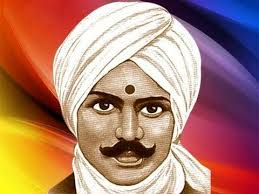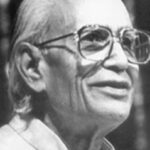Subramanya Bharathi: A Revolutionary Poet Who Shaped India’s History and Culture
Subramanya Bharathi, often hailed as the “Tamil Kakasaheb” and a beacon of India’s revolutionary spirit, was not just a poet but a freedom fighter, philosopher, and social reformer. His life and works continue to inspire millions, representing a pivotal era in Indian history. In this article, we will explore his biography, daily life, impacts, and much more. We will also highlight the significance of his contributions to Indian society.
Early Life and Education
Subramanya Bharathi was born on December 11, 1882, in the town of Ettayapuram in Tamil Nadu, India. Born into a Brahmin family, he showed an early inclination toward literature and poetry. His father, a scholar, supported his education, and Bharathi excelled in subjects like Tamil, Sanskrit, and English. By the age of 14, he had composed his first poem, and his poetic genius became evident as he continued to grow.
Bharathi’s formal education was at the American Mission School in his hometown, where he was exposed to Western literature and philosophy. These influences enriched his understanding and helped him blend traditional Tamil poetry with modern ideas of social justice, nationalism, and freedom.
Daily Life and Revolutionary Ideas
Bharathi’s life was marked by a deep commitment to his beliefs. Though he was deeply rooted in Indian culture, he was also profoundly influenced by Western ideas. He envisioned an India free from colonial rule and firmly believed in the power of unity among its diverse people. He was a staunch supporter of the Indian independence movement and used his poetry and prose to inspire the masses.
Bharathi led a simple life, often facing financial difficulties due to his commitment to his ideals. He worked as an editor for various journals, including the Tamil newspaper India, which was a platform for his revolutionary writings. Despite being recognized for his poetic brilliance, Bharathi’s life was filled with struggles, as he was often at odds with the British authorities and even faced exile for his political activities.
Impacts and Contributions
- Role in the Freedom Struggle: Bharathi was a key figure in the Indian freedom movement. His poems and songs were filled with patriotic fervor and became anthems of revolution. His famous work “Vande Mataram” resonated with many and fueled the nationalist sentiment.
- Literary Contributions: Subramanya Bharathi’s poetic genius transcended boundaries. He wrote in Tamil, and his works are considered some of the finest contributions to Tamil literature. His style of poetry was marked by its modernity and emotional depth. He is known for his work in various genres, including patriotic songs, social reform, and romantic poetry.
- Social Reforms: Bharathi was an advocate for women’s rights and social equality. He strongly opposed the caste system, child marriage, and untouchability. His poems often highlighted the need for societal reform and the importance of education for women.
- Influence on Tamil Culture: Bharathi’s work revived and enriched the Tamil language and culture. His innovative blending of Tamil with modern ideas opened up a new horizon for Tamil poetry.
Significance in Indian Society
Subramanya Bharathi’s contributions have had an enduring impact on Indian society. His revolutionary ideas about independence, equality, and social justice continue to resonate with modern-day activists and thinkers. He was not just a poet but a visionary who sought to change the course of history through his words. His advocacy for women’s empowerment and his vision of a united India were far ahead of his time.
Bharathi’s works remain influential in the fields of literature and politics. His poems continue to be recited in schools and colleges across India, and his message of freedom and unity is just as relevant today.
Key Facts About Subramanya Bharathi
- Born: December 11, 1882
- Died: September 12, 1921
- Famous Works: Panchali Sabadam, Vande Mataram, Kuyil Pattu
- Role in Freedom Struggle: He was actively involved in the Indian independence movement and worked alongside other revolutionaries like Sri Aurobindo.
- Legacy: Bharathi’s legacy is celebrated across India, especially in Tamil Nadu, where his birth anniversary is commemorated every year.
Observance and Celebration
In Tamil Nadu, Subramanya Bharathi’s birth anniversary is celebrated as “Bharathi Day” on December 11, which is marked by cultural programs, literary discussions, and recitations of his poems. His works are also celebrated through music, with several of his poems set to tune and performed in concerts and festivals.
Conclusion
Subramanya Bharathi’s life and works stand as a testament to the power of words and their ability to inspire social and political change. His contributions as a poet, philosopher, and freedom fighter remain deeply ingrained in the cultural and historical fabric of India. His message of unity, social justice, and patriotism continues to inspire generations.
By honoring his memory and teachings, we not only pay tribute to one of the most influential figures in Indian history but also remind ourselves of the importance of literature and activism in shaping the future of society.
FAQs
Q1: What is Subramanya Bharathi famous for?
Subramanya Bharathi is famous for his revolutionary poems, songs, and writings that inspired the Indian independence movement. His works also emphasized social reform, particularly for women’s rights and equality.
Q2: When did Subramanya Bharathi die?
He passed away on September 12, 1921, at the age of 38, leaving behind a legacy that continues to inspire generations.
Q3: What is the significance of Subramanya Bharathi in Indian history?
Bharathi played a significant role in the freedom struggle through his powerful writings, which stirred nationalist sentiments. His contributions to Tamil literature and social reform were also monumental in shaping modern India.
Q4: How can I celebrate Bharathi Day?
Bharathi Day, celebrated on December 11, is a time to engage in recitations of his poems, listen to discussions about his works, and remember his contributions to India’s freedom and cultural heritage.










